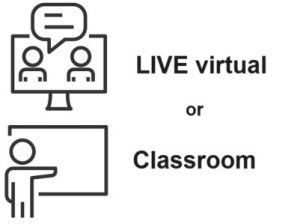Leading
Scientific Teams
Evidence-based tools for lab and research leaders
Why do some science and research teams outperform others? And what can their leaders do to ensure theirs is happy, efficient and doing its best work?
Informed by the best research, Leading Scientific Teams offers an intensive dive into the controllable factors that influence the performance of scientific teams. It provides participants with a range of practical tools they can use to make an immediate impact on the health and productivity of their teams.
The workshop is led by a specialist facilitator, with content adapted to meet your needs.


Key themes

Collective Intelligence
CI is the group equivalent of individual IQ. Teams with high CI outperform others on a range of tasks, from ideation to decision-making. Boosting CI is a key part of a team leader's role.

Social Perceptiveness
Emotionally intelligent leadership is a learnable skill, and there are many tools, techniques and processes that you can use to help you get the best from those you manage.

Psychological Safety
Creating an environment in which members feel supported, confident and respected is essential to long-term team performance, reducing attrition and maintaining engagement.

Cognitive Diversity
Scientific teams often encompass a variety of minds, personalities and ways of thinking about and seeing the world. Ensuring every member feels accepted and understood is key to the team achieving its potential.

Skills Congruence
One of the most powerful ways of boosting CI is to understand the skills of team members, and to find ways to collaborate that play to these strengths

Collaboration Processes
Some of the simplest levers to pull to improve team performance are about putting in place processes to facilitate better meetings, communication, direction and collaboration.

Course content
INTRODUCTION
What’s the evidence?
- Introduction to the science of teamcraft: What is “collective intelligence”
- Research on the relationship between collective intelligence and team effectiveness
- Factors that contribute to collective intelligence and team performance
PART 1
Social perceptiveness and emotional intelligence
- What is “social perceptiveness”?
- The research on the tension between the scientific mindset and social perceptiveness
- How high and low emotional intelligence members impact how a group or team functions
- Tools for building self-awareness, empathy and emotional intelligence
- Recognising and managing emotions under pressure
PART 2
Psychological safety
- What is “psychological safety”?
- The benefits of psychological safety to team productivity
- 10 practical ways to build psychological safety in your team
- Building a safe and constructive environment in which to disagree
- How to facilitate healthy, productive disagreement in teams and in meetings
- Identifying ways to role model psychological safety as leaders
PART 3
Cognitive and neuro diversity
- What is “cognitive diversity”?: “inclusion of people with different beliefs, viewpoints, approaches”
- The competitive advantages of cognitive diversity in teams and organisations
- What is “neurodiversity”?: “inclusion of people with different brain function, ways of thinking and interacting with others”
- Understanding and adapting to support and build relationships with neurodiverse colleagues
PART 4
Skills congruence and collaboration processes
- What is “skills congruence” and why it is so important to team performance?
- Understanding your own skills and strengths (optional online assessment completed before the session)
- Identifying and developing your team members’ strengths
- Creating effective processes to achieve goals and capitalise on the team’s strengths profile
- Agreeing objectives and goals for teams and individuals
- Reviewing and encouraging progress during 1:1s
- Holding effective, inclusive meetings
CONCLUSION
Action planning
- Creating individual action plans based on key takeaways from the course
- Conclusion and close
Delivery formats
This training can be delivered virtually in a day, or as two shorter sessions. It can also be run as a traditional classroom course for UK-based clients.
In either format, the training is intensive, packed with tools and tips, and highly engaging, equipping participants with the knowledge and skills to make an immediate impact on the quality of the leadership they offer to their lab, team or group.
If you have a group of colleagues who could benefit from the Leading Scientific Teams training course, we can deliver a session for your organisation at a time that suits you. Whether you choose a virtual or a classroom delivery, the content can be adapted to the needs and circumstance of your group to ensure we meet their needs head-on.
About us
For twenty years, we have been helping STEM organisations in the UK, Europe and North America to develop the leadership capabilities and professional skills of their new, aspiring and experienced managers.
Cambridge Exec has worked with a huge range of scientific organisations, both within the Cambridge STEM Cluster and far beyond. Our clients include some of the world’s most well-known companies, universities, government bodies and NGOs.

Get in touch...
If you have a question, would like a quote, or would like to arrange a call to explore how our training could work for you, please get in touch.
For an accurate quote, please provide the following information:
- How many delegates you would like to attend the training
- Whether you would like the course delivered face-to-face or virtually
- Where you are based (if face-to-face delivery is preferred)
You can reach us by email or call us on 0845 2260624.
